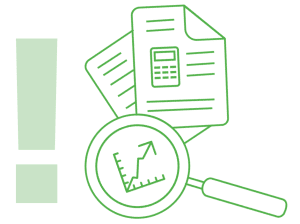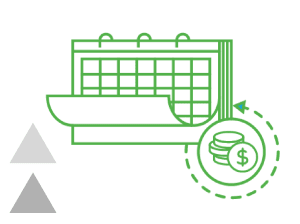From this article, you will learn:
- what a customs and tax control is;
- what aspects can tax and customs control concern;
- how a customs and tax control is initiated and who conducts it.
Tax and customs control – is there a reason to be afraid?
Recently the number of tax and customs controls initiated by the Polish heads of tax and customs offices is successively increasing. However, a question arises as to what a customs and tax inspection is and what consequences it can have for the taxpayers.
The basis for starting and conducting a tax and customs control are the provisions of the Act of November 16, 2016 on the National Revenue Administration (hereinafter: the KAS Act) which replaced, among others, earlier legislation on fiscal audit.
Tax and customs control, similarly to tax inspection, is a procedure aimed at checking if the inspected taxpayer complies with tax regulations and correctly performs duties regarding this matter. However, it is necessary to pay attention to a range of important issues typical of tax and customs control.
Basic rules and initiation of tax and customs control in practice
Tax and customs control is conducted by the heads of tax and customs offices and the control actions are performed by the National Revenue Administration (KAS) workers and by the Tax and Customs Service officers.
Currently, in Poland there are 16 functioning tax and customs offices, one in each province. However, these offices territorial area of operation is not limited only to the province where the office headquarter is! It means that each of those offices can both start and conduct tax and customs control anywhere in Poland.
Tax and customs control may have the purpose of checking if the taxpayer:
- complies with the provisions of tax law,
- complies with the provisions of customs law,
- complies with the provisions of foreign exchange law,
- complies with the regulations on gambling,
- does not participate in money laundering or terrorism financing.
Moreover, during tax and customs control officials can check, among others, the type of fuel in the transportation vehicle tank, control road transport or conduct an inspection of postal parcels.
Learn more about related services
Who can be inspected by the KAS workers?
It has become customary that tax and customs controls are aimed at combating the most serious crimes violating the fiscal interest of the state, like VAT fraud or tax carousels.
Meanwhile, as taxpayers, we have to be aware that tax and customs control may be directed at every entity that is obliged to comply with the provisions in a given area. Tax and customs control can therefore be initiated against every entrepreneur, even the one whose scale of activity is small.
What is more, the limits resulting from the Act of March 6, 2018 – Entrepreneurs' Law – will not be an obstacle for starting tax and customs control. In accordance with this law, with a few exceptions, the duration of all the inspections at a given entrepreneur in one calendar year cannot exceed a specified number of days.
For micro-entrepreneurs it is 12 working days, for small entrepreneurs 18 working days, for medium entrepreneurs 24 working days, while for others it is 48 working days. However, this regulation does not apply to tax and customs controls, which is stated in the Art. 93 of the KAS Act.
Initiation of tax and customs control is a surprise for the taxpayer
Remember, in the case of tax and customs control, the controlled entity does not receive any information about the intention of starting a control. It is a significant difference in comparison to the tax inspections conducted by the heads of the tax offices based on the provisions of the Tax Ordinance.
The initiation of tax and customs control occurs at the time of delivering to the controlled entity an authorization to conduct a tax and customs control. From this date the verification activities can immediately begin. Therefore, in fact, the taxpayers do not have the possibility to prepare for the conducted control in advance.
Moreover, if an authority has a suspicion that the taxpayer does not comply with the law (and the circumstances really justify the immediate conduct of tax and customs control), then the control can be initiated only on the basis of a presented service identification card. In such case, the authorization to conduct the control should be delivered to the controlled without undue delay.
How to stay calm and what to do in the case of an unexpected control?
Not only the the manner of initiating tax and customs control, but also its course and the manner of completion make it perceived as a procedure that is much more uncomfortable and burdensome for taxpayers than a tax inspection. This is why, already at the initial stage of the control it is worth using the services of tax advisors who, having appropriate experience in this area, will point out the possible threats and way of overcoming a difficult situation.
The experience of RSM Poland tax advisors shows that, even though a tax and customs control is initiated without prior notice, the National Revenue Administration authorities already at the initiation stage may commit violation of procedural laws. Noticing these violations (and adequate usage of them) can significantly improve the procedural situation of a taxpayer in dispute with KAS.
The role of a tax advisor in the dispute with KAS
In our next entries we will introduce other important issues regarding tax and customs control, including, in particular, the entitlements the controllers have, duties the controlled entity has and also how the tax and customs control may end.
If you look for the support because of the currently ongoing tax and customs control, please contact us. Our Tax Litigation Team will provide professional handling of a dispute, saving money, time and nerves. Therefore, we encourage you to read the next entries and, if you need to discuss the topic, we are at your disposal.





